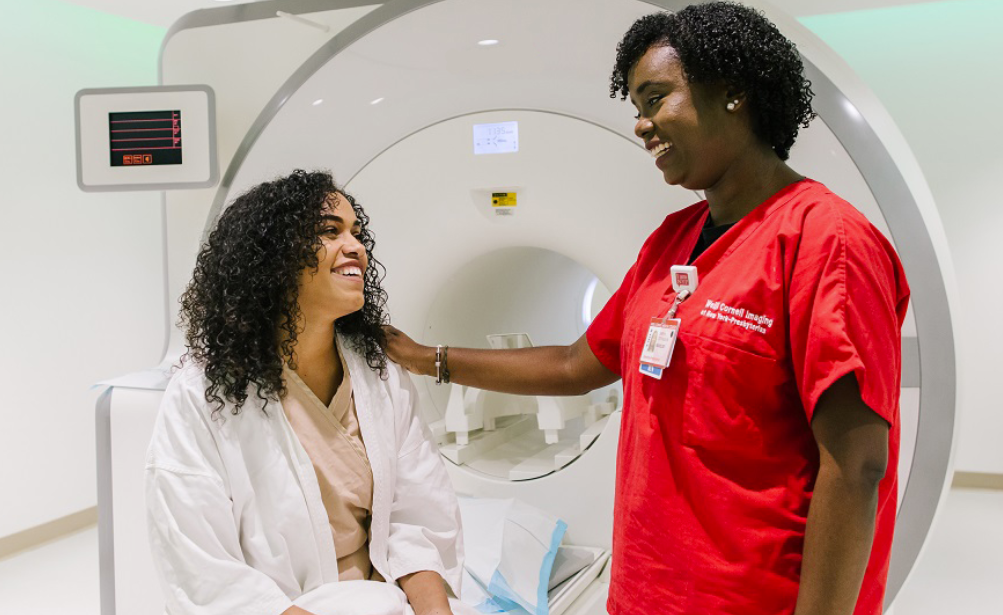MRI Is Not What It Used To Be

“Wow. That was nothing like I remember.”
That’s something our MRI technologists at Weill Cornell Imaging at NewYork-Presbyterian (WCINYP) hear all the time. Thanks to major advancements in technology and a strong focus on comfort, MRI exams have come a long way.
You’ve probably heard that artificial intelligence (AI) will shape the future of healthcare—but did you know it’s already making an impact in our department? At WCINYP, our scanners use AI to make MRI exams faster and images clearer than ever. For example, an MRI of the knee used to take over 30 minutes—now it’s done in just 12. Similarly, an MRI of the breast that once took 45 minutes? Now, just 15 minutes. And that’s just the beginning.
But it’s not just AI. Our expert team of world-renowned scientists and physicians at Weill Cornell Medicine has helped develop faster and more effective ways to capture high-quality images. Even the MRI coils—the devices placed on your body during the scan—have been redesigned to be more flexible and less bulky. That means a more comfortable fit, an easier time staying still during your exam, and, in turn, even clearer images.
For patients who feel uneasy in tight spaces, MRI machines are wider and more comfortable. Many people who once struggled with claustrophobia find that they do just fine in our wide-bore scanners. Still think you may need a distraction? Many of our scanners allow you to watch a TV show, listen to music, or enjoy a movie during your exam. Just don’t pick something too long—most exams are over before you know it.
At Weill Cornell Imaging at NewYork-Presbyterian, we’re proud to offer the latest in imaging technology—but we’re even prouder of the people behind it. Our dedicated team, including our experienced technologists, goes above and beyond to provide safe, compassionate, and personalized care. We know that when you choose us for your imaging exam, you’re placing your trust in our hands, and we don’t take that lightly. That’s why we work hard to stay at the forefront of innovation and continue making meaningful advancements to ensure every MRI experience is:
“better than it used to be.”
Contributor: Vice President of Weill Cornell Imaging - Keith Hentel, M.D.

